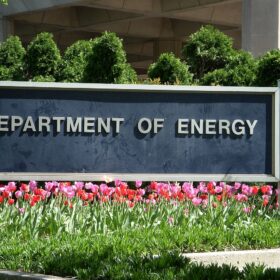The Florida Public Service Commission has released its 2021 Net Metering Report, which outlines all of the new, net-metered renewable energy systems that were interconnected in 2021. The report covers all types of customer-sited renewable energy, but the vast majority of interconnected systems are rooftop solar systems, and the data contained is almost entirely rooftop solar data.
In 2021, Florida interconnected 40,395 new residential solar systems totaling nearly 342 MW of added capacity. The additions bring the state to 130,947 total residential solar systems representing just under 1.2 GW of overall residential solar capacity. At the end of 2020, the state registered 90,552 systems with a total capacity of 835 MW, so the additions in 2021 represent a growth of just under 45% in new systems and roughly 41% in added capacity.
FL PSC released new rooftop solar #s late Friday for calendar year 2021:
– 40,000+ new systems statewide. 130,947 total.
– 44.6% annual growth from 90,553 in 2020.
– Avg % of Florida IOU customers with solar: 1.23%
– FPL lags other IOUs at 0.66% (0.79% with Gulf added)— Scott Thomasson (@scotthomasson) July 5, 2022
In pulling some additional data, Scott Thomasson, a Tallahassee-based clean energy attorney and policy strategist shared that 1.25% of Floridian investor-owned utility customers now have solar energy systems installed. Florida’s investor-owned utilities include Duke Energy Florida, Florida Power and Light (FPL), Gulf Power (owned by FPL), and Tampa Electric company.
The growth of Florida’s rooftop solar market in 2021 alone was significant, and this progress is set to continue into 2022 and beyond, especially since Gov. Ron DeSantis’ April veto of House Bill 741. HB 741 would have phased down the value of net metering and opened the door for utilities to add fixed charges to solar customer bills.
Had the bill been signed by Gov. DeSantis, starting in 2023, payments to solar customers would have regress from a retail rate to the “avoided cost” to the utility, a minute fraction of the retail rate. The phase out was set to slash payment rates to solar customers by 50% in four years and would drop further still to the avoided cost rate by 2029. The bill would have also allowed for fixed charges to grid connected solar customers starting in 2026, with no limit on the fixed charges outlined in the bill text.
The veto of the bill was described by the Solar Energy Industries Association as a “major win for energy freedom and Florida’s clean energy economy.”
This content is protected by copyright and may not be reused. If you want to cooperate with us and would like to reuse some of our content, please contact: editors@pv-magazine.com.









Starting in 2022, Florida’s PUC approved Duke adding up to $23.00 per month ($276/yr) beyond their $12.45 Customer Charge including utility taxes and fees if a customer (Solar NEM or not) has less monthly usage than a “$30 Minimum Bill” would justify.
At current rates (15.7-cents/kWh, including 18.2% fees and taxes (in St Pete FL), the $23.00 add-on can effectively lose a NEM solar customer up to 146 kWh/month or 1,800kWh/yr.
I would bet that for every “successful” installation, there are 10 failed installations where clients are paying for solar panels from Vision Solar, but they do nothing but sit on the roof, looking like solar panels. There are a large number of people who feel they have been scammed by vision solar and are putting together a class action law suit.